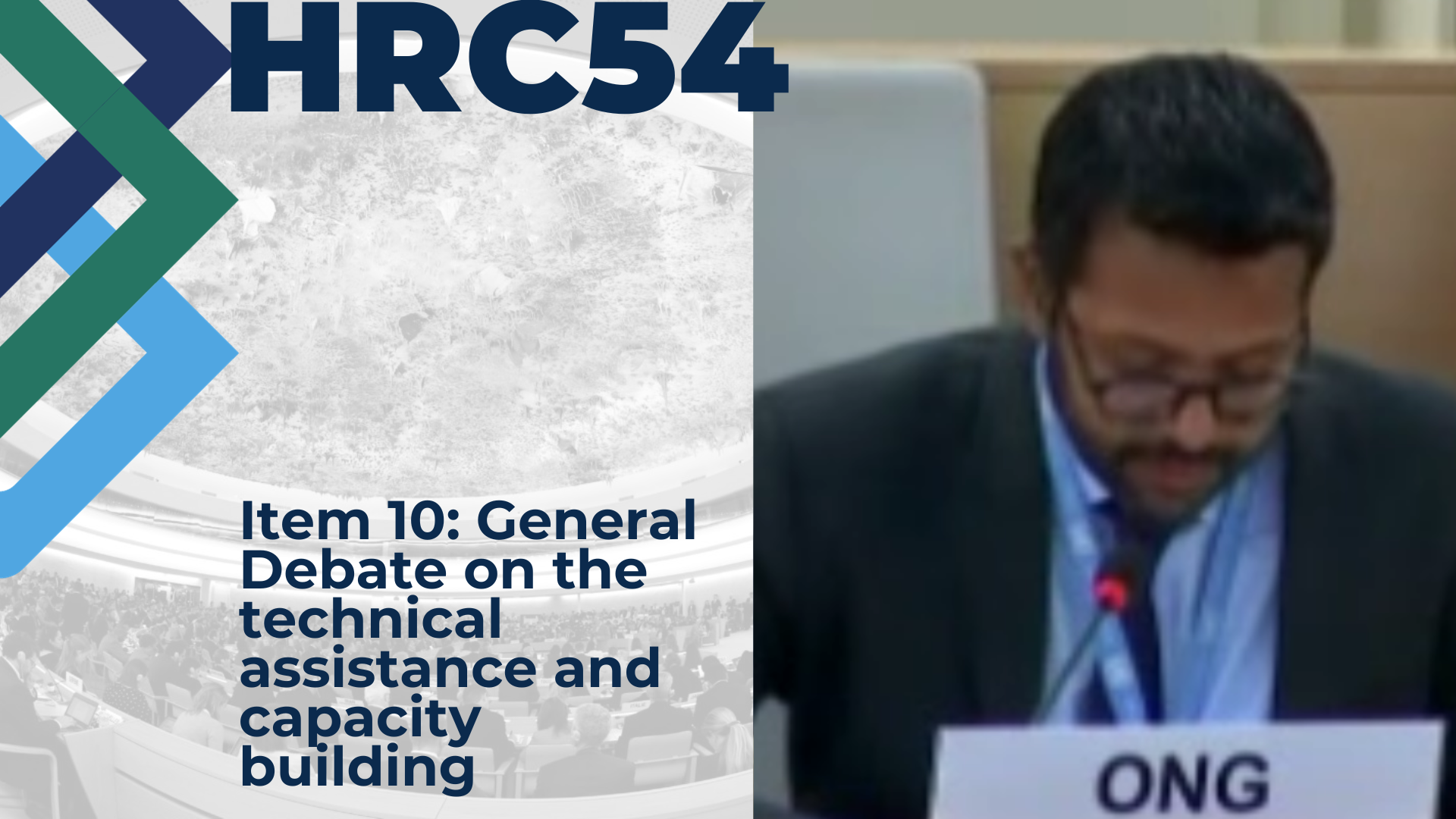54th regular session of the UN Human Rights Council
Item 10: General Debate on the technical assistance and capacity building
Oral statement delivered by Ahmed Adam
On behalf of Asian Forum for Human Rights and Development (FORUM-ASIA)
11 October 2023
Mr. President,
Technical assistance and capacity building component of the Council’s mandate cannot be effectively operationalised without accurate and honest assessments of situations. However, we regret that many states view this agenda item as a path to evading accountability for and scrutiny of serious human rights violations.
In this context, we reiterate the need for regular monitoring and public reporting on the implementation of the UN Joint Programme for Human Rights in the Philippines.
More than two years into the three-year Joint Programme, there appears to be no realistic possibility of achieving much of the very modest objectives of the Joint Programme including those related to reducing the number of drug related killings and accountability.
The highly militarised drug war, despite the objective to implement a rights based-approach, continues to claim lives. Independent monitoring group Dahas documented over 250 drug related killings this year alone. At least 45 per cent of these were committed by state agents. There has been no tangible progress towards accountability for the widespread killings.
Similarly, the continuing pattern of “red-tagging”, smear campaigns, extrajudicial killings and targeting and judicial harassment of human rights defenders directly contradict with the objectives of the Joint Programme as well as the government’s stated commitments to uphold its human rights obligations.
We urge the Council to put in place measures to independently assess the implementation of the Joint Programme, in particular its contributions towards addressing the serious, widespread and systematic human rights violations and the entrenched impunity documented in the High Commissioner’s previous reports to the Council. The Council cannot allow the Philippines to use the Joint Programme to window-dress its atrocious human rights record without accountability.
Thank you



